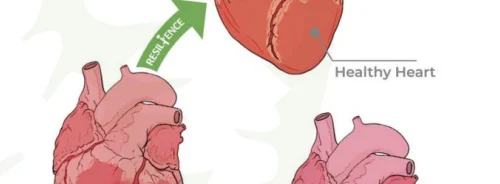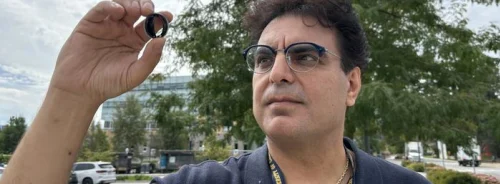A team of researchers at UBC Okanagan has developed a breakthrough heart valve that could be life-changing—and life-saving—for many patients. Working in the Heart Valve Performance Laboratory, Dr Hadi Mohammadi, an Associate Professor at UBC Okanagan's School of Engineering, and his team have created the iValve, their most advanced mechanical heart valve to date, which merges the strengths of both mechanical and tissue valve technologies.
While tissue valves often perform better due to their shape, they only last 15 to 20 years, necessitating another replacement. On the other hand, mechanical valves are highly durable and can last a lifetime but don't function as well as tissue valves and require patients to take daily anticoagulants.
This new mechanical heart valve, the iValve, combines the performance benefits of tissue valves with the durability of mechanical ones. It could significantly improve patients' lives by providing better performance with long-lasting durability.
The valve was developed in collaboration with ViVitro Labs and independent consultants Lawrence Scotten and Rolland Siegel. The research, funded by Angeleno Medical, was recently published in the Journal of Biomechanics.
While mechanical heart valves have been in use for some time, one of the biggest challenges has been developing solutions for infants and children whose small hearts require valves that can withstand high heart rates. The iValve addresses this challenge, making it particularly promising for paediatric patients.
With successful lab tests of the prototype complete, the team is now preparing for animal and clinical trials, which they hope to begin within two years. In parallel, they plan to expand their work to develop new valves.
This valve is designed to ensure proper blood flow to the aorta. The next step is to create a similar valve for the mitral valve. The team has demonstrated that the iValve offers the structural benefits of a mechanical heart valve with the improved haemodynamic performance typically associated with tissue valves. This means better blood flow through vessels and the potential for a valve that lasts a lifetime.
The valve could dramatically improve the quality of life for patients currently dependent on anticoagulant therapy, which carries risks of severe bleeding, blood clots, or damage to tissues and organs if blood flow is disrupted. With the iValve, many of these risks could be reduced or eliminated.
Source: The University of British Columbia
Image Credit: UBCO
References:
Goode D, Scotten L, Siegel R, Mohammadi H (2024) Can mechanical heart valves perform similarly to tissue valves? An in vitro study. Journal of Biomechanics.






